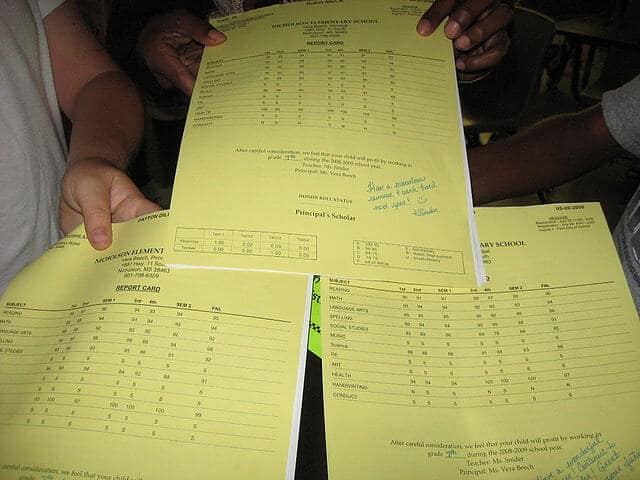The smallest, most forgettable words in admissions essays can tell us in advance how students will perform in college, a new study by researchers at The University of Texas at Austin reveals.
Common sense suggests that academic potential is shown by use of long complicated words. The new research shows, on the contrary, that common, easily overlooked words — such as the, a, to, I and they — matter. These short words provide a better yardstick than long words for measuring a person’s potential.
The new study used 50,000 admissions essays written by prospective college students, enabling the researchers to connect language use to later college performance. It turned out that how students use small words is related to subsequent GPA. For example, students who heavily use the word I tend to do worse in class, and students who heavily use of the words the and a do better.
“Function words allow us to assess how people are thinking more than what they are thinking about,” said James Pennebaker, a psychology professor at The University of Texas at Austin and co-author of the paper. “In the growing age of big data, we can now begin to identify the potential thinking patterns of individuals, groups and perhaps even cultures for whom there exist language records.”
The UT Austin team used computerized text analysis to show that college performance is tied to a new measure that they call the Categorical Dynamic Index (CDI). This measure is calculated from a simple combination of the frequencies of common words. Categorical thinking involves categorizing things into kinds and connecting objects and concepts in a sophisticated way. Categorical thinking is reflected by use of articles such as the and prepositions such as on and of.
The new research shows that people who think categorically do better in college than those who don’t. On the other hand, dynamic thinkers see the world in terms of narratives, typically personal and subjective. Dynamic thinkers use more pronouns such as I and they and more auxiliary verbs such as will and had, and these applicants ended up, on average, with lower GPAs in the study.
The paper, titled “When Small Words Foretell Academic Success,” appeared in the Dec. 31 online edition of the journal PLOS ONE. In addition to Pennebaker, the interdisciplinary team of researchers includes David Beaver, professor in the Department of Linguistics; Gary Lavergne, program manager in the Office of Admissions; Cindy Chung, psychology postdoctoral fellow; and Joey Frazee, a linguistics graduate student.
The surprising finding that small words are tied to academic success could, of course, be used by admissions officers. But the researchers caution against the simple use of word counts in admissions decisions.
“The results could be interpreted not as a failure of dynamic thinkers to do well in college,” said Beaver, “but as a failure of college to help students add categorical thinking to their arsenal.”
If our reporting has informed or inspired you, please consider making a donation. Every contribution, no matter the size, empowers us to continue delivering accurate, engaging, and trustworthy science and medical news. Independent journalism requires time, effort, and resources—your support ensures we can keep uncovering the stories that matter most to you.
Join us in making knowledge accessible and impactful. Thank you for standing with us!

